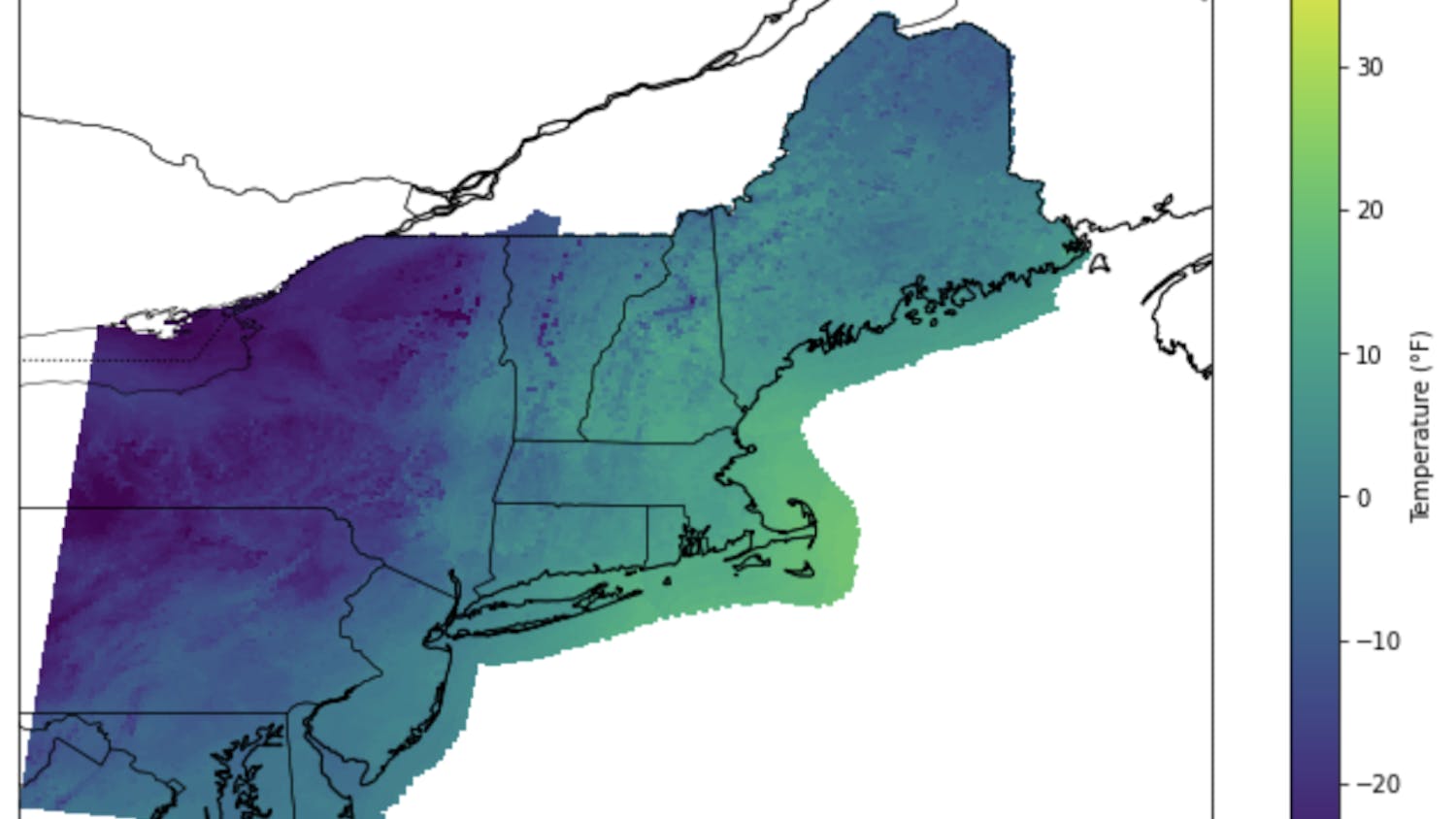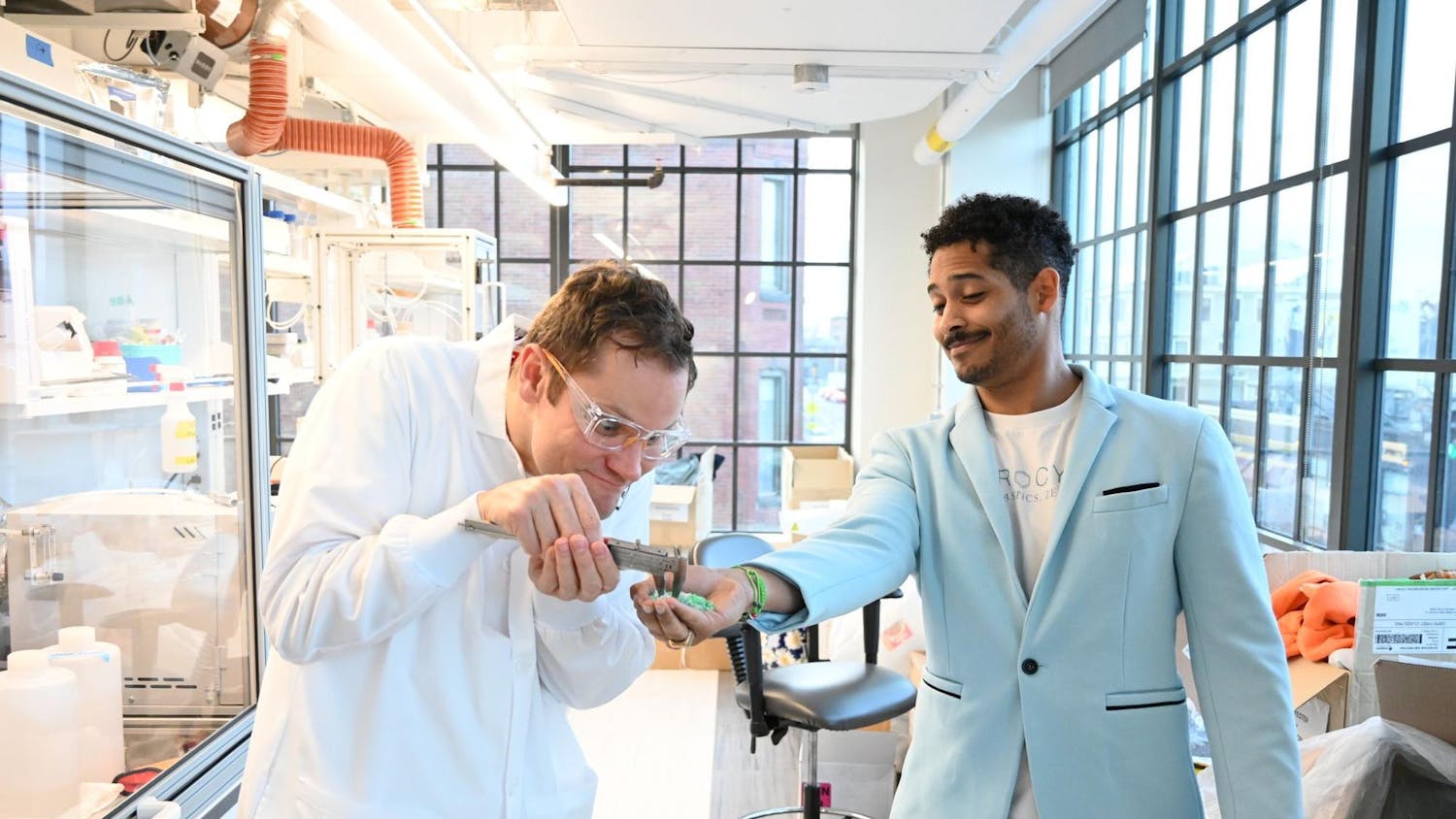“How do you feed 10 billion people by 2050 without destroying the world?” asked Prof. Hakim Weatherspoon, computer science.
At Cornell’s Digital Agriculture Hackathon this past weekend, over 200 Cornell students sought to answer that question. This past weekend, teams were challenged to improve the environmental impact of agriculture, develop high-yield food production strategies, support small farmers and make food systems more efficient.
After multiple days of coding, design, research, and business planning, 26 teams presented their demos, out of which 10 were selected as finalists and five teams won prizes. Each team’s proposed solution was judged on data collection and analysis, novelty, social impact and market-readiness.
The grand prize winner, InsectInsights, had the highest combined score and received a prize of $2,000. Its team members developed a product that allows fish farmers to grow their own fly larvae to feed their fish rather than buying fish meal. Users are provided with “love cages” — where adult flies mate — and boxes for the larvae to grow in.
InsectInsights also prototyped a mobile application to connect fish farmers with local food producers because in InsectInsights’s system, one food producer’s organic waste is another producers’ fly food — doing so not only feeds the insects but also helps reduce food waste, according to InsectInsights team member Sheren Winarto MPS ’19.
Team Guardians won $1,500 for excellence in data capture and analysis. The team developed a predictive algorithm for cows calving time that can alert farmers via an app to monitor the birthing process and provide medical assistance if necessary. This allows farmers to monitor the birth when a selected cow begins labor.
“This model is based on research conclusions that three hours before birth, a cow’s activity will peak and rumination will reach a low point,” said team member Tian Ren M.Eng ’19.
Team Mastitech won $1,500 for most market–ready solution with their invention of a sensor that detects cow jaw movement and an algorithm to calculate cow feed intake.
According to J. Hunter Reed DVM ’20, this information will help with the nutrition and healthcare management of cows in the short term. In the long term, Mastitech’s data can be combined with lactation data to find and breed feed-efficient cows that produce more milk while requiring a smaller amount of food. This would reduce the environmental impact of dairy farming.
Mastitech also focuses on making small dairy farms more financially viable. “Having worked on my grandfather’s and now my uncle’s dairy, it kind of gives you a little bit of insight as to the struggles that individual farms, small farms especially, feel disproportionately compared to larger farms,” Reed said.
Mastitech is among the many teams at the Hackathon interested in continuing the expansion of their projects in the future.
“Some of our teammates have expressed that maybe this does have the potential to be sold and advertised to interested parties, and we are interested in actively pursuing that,” Reed told The Sun.
Another $1,500 and the award for greatest social impact went to Team Farmval. They developed a method of digital evaluation of farmers land, using data from soil sensors and drone imagery. The value of the land is used to create a credit score, improving farmers’ access to loans. The information would then be stored on the block chain.
“We use this because a lot of these farmers are worried about security and privacy, and that’s the best use case of blockchain,” said Team Farmval member Shiang-Wan Chin M.Eng. ’20.
During the hackathon, Team Farmval took initial steps towards growing their product by contacting potential partners, such as “cold-emailing” another company working on similar projects. According to Chin, the company, Traive, expressed an interest in working with Farmval.
Team Afuom won $1,500 for most novel idea. They developed an app that provides crowdsourced information for farmers in developing countries. Members of Afuom drew from their own experiences in African countries, including Senegal, to identify the problem of lack of information access in rural areas.
Ranveer Chandra, a principal researcher at Microsoft and keynote speaker of the event, emphasized the importance of digital agriculture in an interview with The Sun.
"Overall, we are invested in taking it to every farmer and playing our role in getting these digital agriculture techniques off the ground. A key part of it is working with non-profits, to make sure everyone gets the benefits of these technologies,” Chandra said. "The mission here is to get the future farmers and leaders in the farming industry trained in digital agriculture.”

Feeding the World in 36 Hours: Cornell’s Digital Agriculture Hackathon Bridges Farm and Tech
Reading time: about 4 minutes
Read More










